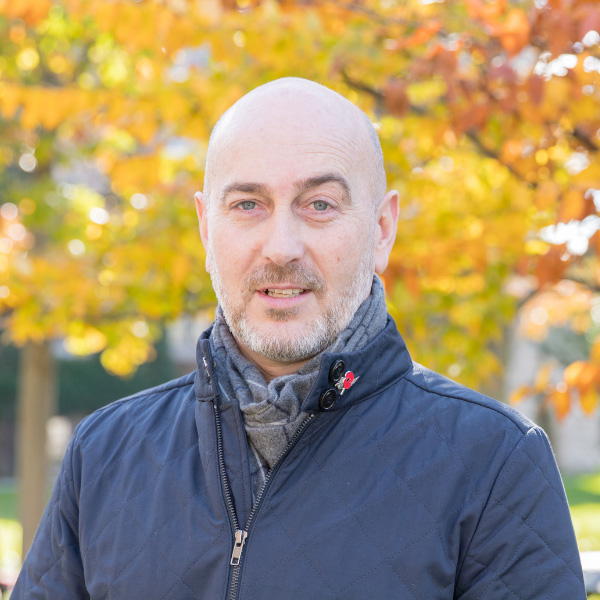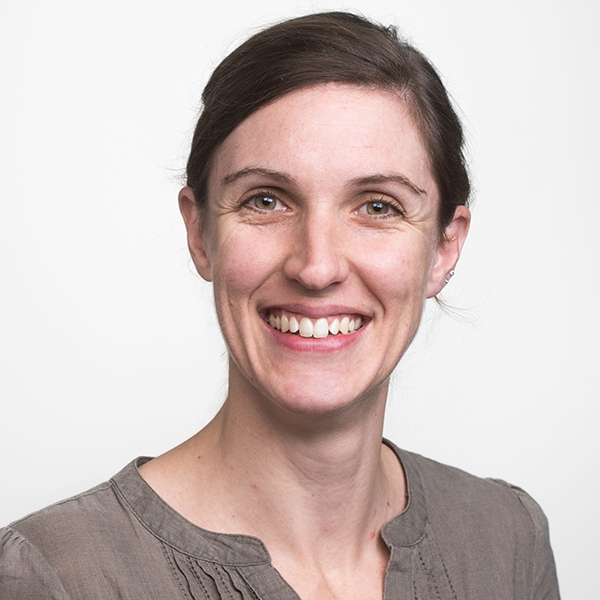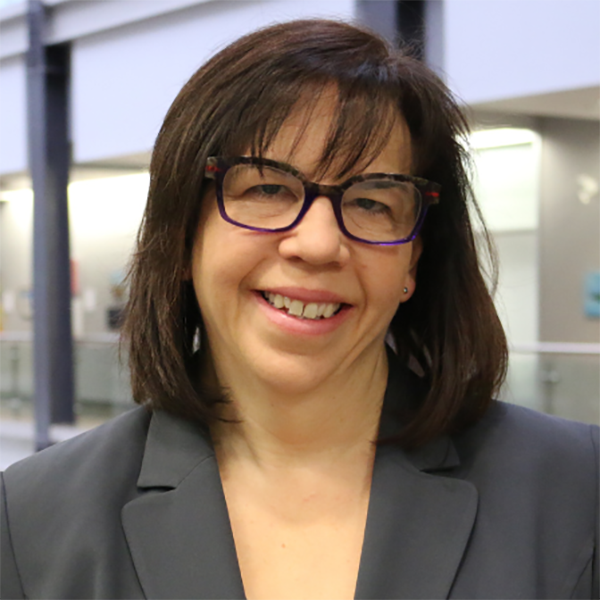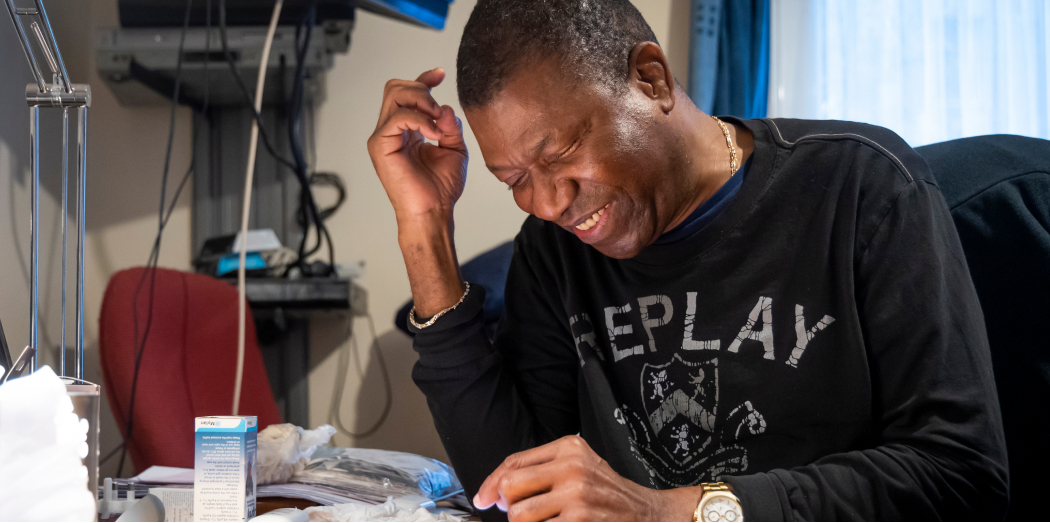Intergenerational Study on Aging (MIRA-iGeN): Building a platform for intergenerational research
Major Program of Research
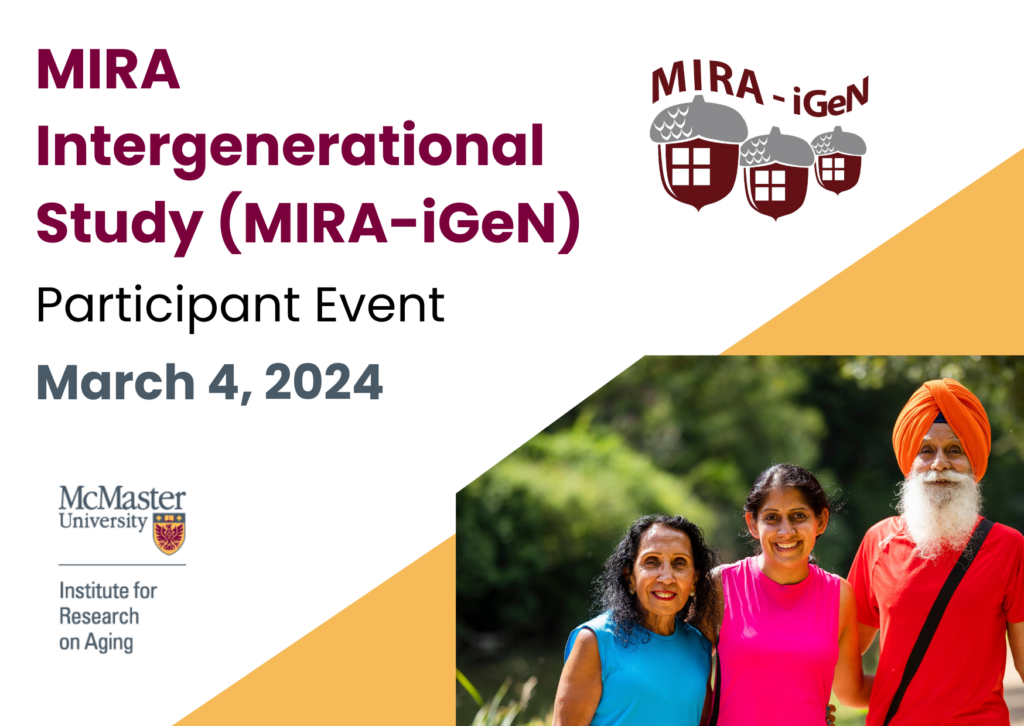
On March 4, our team held an online MIRA-iGeN Participant Event. The presentation includes an overview of the study and discusses why intergenerational research is important and how it can contribute to our understanding of healthy aging.
Early research shows that having strong connections with family members across generations can help people age better. To learn more about how these family connections — like those with children, parents or grandparents — affect health, the McMaster Institute for Research on Aging (MIRA), McMaster University and Dixon Hall have partnered to create the McMaster Institute for Research on Aging Intergenerational Study (MIRA-iGeN).
To date, we have enrolled over 3,100 participants. Our team is now working on enrolling the parents, children, and grandchildren of our initially recruited participants.
When you first join the study, if you have family (grandparents, parents, children, and/or grandchildren), you will be asked in the questionnaire if you would be willing to share information with them about how they can also participate. We hope that you will consider inviting them to be a part of this important study.
Why are we doing this research?
The MIRA-iGeN team believes this research can help guide the development of programs that can improve people’s quality of life and support healthy aging. To do this, we need to understand what causes differences in health and disease among people from different economic and social backgrounds as they age. Researchers also hope to learn the long-term effects of environmental and social factors and how they may impact the health and well-being of a person’s children and grandchildren.
What is unique about this study?
There is a lot of interest in how early life experiences can impact our health later in life, but most studies have only looked at this within a single generation.
Research suggests that biological, psychosocial, environmental, lifestyle, behavioural and other factors are shared between multiple generations of families. For the first time in history, up to four generations of the same family may be living at the same time. This gives us a unique opportunity to study health and aging across families to understand what factors affect our health, mobility, mental well-being and social participation.
What we expect will come from this research?
MIRA-iGeN research will help identify factors that are common across generations and their connection to health conditions such as cardiovascular disease, cancer, mental health disorders, diabetes, and dementia. Knowing more about why some people develop a disease while others don’t, even when they share risk factors (like obesity), will help us develop more personalized prevention strategies and treatments that may give people more years of healthy living.
Who are we asking to be part of MIRA-iGeN?
We are forming a research cohort of 15,000 people. A cohort is a large group of people that researchers work with and learn from — in this case, how biological, social, lifestyle and environmental factors influence health and development across lifespans and generations. We plan to recruit three generations of families, with 5,000 people from each generation as well as people without children or grandchildren. The research team will reach out to participants living in the province of Ontario.
For more information, please contact
Meghan Kenny, iGeN Research Coordinator
Email: mkenny@mcmaster.ca
Sharon Peck-Reid, iGeN Research Assistant
Tel: 289-933-8850
Dr. Andrea Gonzalez
Department of Psychiatry and Behavioural Neurosciences
McMaster University
Tel: 905-510-1652
gonzal@mcmaster.ca
Dr. Parminder Raina
Department of Health Research, Methods, Evidence & Impact
McMaster University
Tel: 905-525-9140, ext. 22197
Frequently Asked Questions
Anyone living in the province of Ontario.
Yes, when you complete a questionnaire you will receive a $20 gift card. We will also do yearly draws for $50 gift cards.
Yes, they can. As long as the first person in the family that enrolls in the study lives in Ontario, it doesn’t matter where their family members live.
Yes, you can! We are very much interested in including participants without children and grandchildren in the study. Currently, 20% of iGeN participants do not have children. It is important that we include participants without children as well as those who have them to better understand all of the factors that contribute to healthy aging across the life course.
No, they do not. We welcome the participation of biological and non-biological parents, children, and grandchildren.
We are hoping to run the study for at least 10 years. In order to understand the factors that contribute to healthy aging across generations, we will need to follow participants over time
We will follow up with you every 3 years.
The study is currently funded by the McMaster Institute for Research on Aging as one of their major programs of research.




